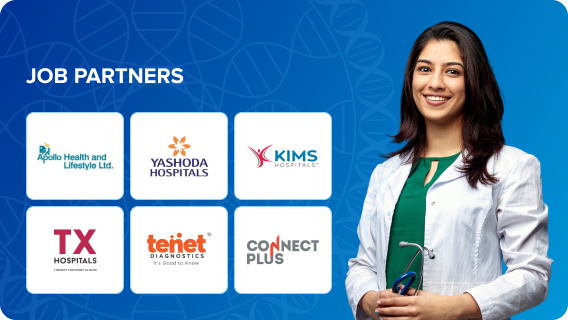
What is the Easiest Healthcare Job? Career Options in the Medical Field
What is the Easiest Healthcare Job? Exploring Career Options in the Medical Field
In today's world, the healthcare industry offers a wide range of career opportunities, catering to individuals with diverse interests and skill sets. Whether you're considering a career change or exploring your options as a fresh graduate, finding the right healthcare job can be a daunting task. Some may wonder which healthcare roles are considered easier or more accessible than others. In this article, we'll delve into the topic and explore various healthcare professions, shedding light on the easiest healthcare job options available. So let's get started!

Table of Contents
Introduction
Exploring Easy Healthcare Jobs
1. Medical Transcriptionist
2. Medical Coder
3. Medical Billing Specialist
4. Pharmacy Technician
5. Medical Assistant
6. Home Health Aide
7. Medical Receptionist
8. Phlebotomist
9. Medical Records Technician
10. EKG Technician
11. Dental Assistant
12. Optician
13. Radiologic Technologist
14. Physical Therapy Aide
15. Patient Care Technician
Conclusion
FAQs
Introduction
The healthcare industry is vast, encompassing a range of job roles that vary in complexity, educational requirements, and experience. While some healthcare jobs may require extensive education and training, others offer a more accessible entry point for individuals seeking a career in the medical field. These "easier" healthcare jobs often serve as stepping stones or introductory roles for those looking to gain experience and explore the industry further.
Exploring Easy Healthcare Jobs
1. Medical Transcriptionist
Medical transcriptionists play a vital role in converting medical audio recordings into written documents. This job requires excellent listening skills, attention to detail, and a good command of medical terminology. With the advancement of technology, medical transcriptionists now rely on voice recognition software, making the job more manageable and accessible to newcomers.
2. Medical Coder
Medical coders are responsible for translating medical diagnoses, procedures, and treatments into standardized codes. While this role requires training and knowledge of coding systems such as ICD-10 and CPT, it can be an easier healthcare job for individuals who enjoy working with data, have good analytical skills, and pay meticulous attention to detail.
3. Medical Billing Specialist
Medical billing specialists handle the billing and insurance claims process in healthcare facilities. They ensure accurate coding, proper documentation, and timely submission of claims. While this role may require familiarity with billing software and medical coding, it can be a viable option for individuals with organizational skills and an aptitude for administrative tasks.
4. Pharmacy Technician
Pharmacy technicians assist pharmacists in dispensing medications, managing inventory, and providing customer service. Although this role may require certification in some states, it often serves as an entry-level position in the pharmaceutical industry. Attention to detail, good communication skills, and basic knowledge of pharmaceuticals are essential for success in this role.
5. Medical Assistant
Medical assistants perform both administrative and clinical tasks, supporting healthcare professionals in various settings. Their responsibilities include taking patient histories, measuring vital signs, preparing examination rooms, and scheduling appointments. A certification or diploma in medical assisting can enhance job prospects, but entry-level positions may be available without formal training.
6. Home Health Aide
Home health aides provide personal care and assistance to individuals who are elderly, disabled, or chronically ill. This role typically involves tasks like bathing, dressing, meal preparation, and light housekeeping. While formal education may not be mandatory, completing a state-approved training program can increase job opportunities.
7. Medical Receptionist
Medical receptionists are responsible for managing appointments, greeting patients, and handling administrative tasks in medical facilities. Good communication skills, organizational abilities, and a friendly demeanor are important for this role. While no formal education is required, relevant experience or training in customer service can be advantageous.
8. Phlebotomist
Phlebotomists specialize in drawing blood samples from patients for diagnostic testing, transfusions, or donations. They must be skilled in venipuncture techniques, ensuring patient comfort and accurate sample collection. Many phlebotomy training programs are available, offering a pathway to enter this field relatively quickly.
9. Medical Records Technician
Medical records technicians, also known as health information technicians, manage and organize patient medical records. They ensure the accuracy, confidentiality, and proper storage of healthcare data. While an associate degree in health information management is preferred for this role, some positions may be accessible with a high school diploma or equivalent.
10. EKG Technician
EKG technicians perform electrocardiogram tests to monitor and record the electrical activity of patient's hearts. They operate specialized equipment, apply electrodes, and assist physicians in analyzing the results. EKG technician training programs are available, providing the necessary skills and knowledge for entry into this role.
11. Dental Assistant
Dental assistants support dentists during patient procedures, perform administrative tasks, and educate patients on oral hygiene. While formal training or certification may be required in some states, entry-level positions can often be obtained with a high school diploma or equivalent.
12. Optician
Opticians help patients select and fit eyeglasses or contact lenses based on prescriptions provided by optometrists or ophthalmologists. They also ensure proper alignment and adjust eyewear as needed. While some states require formal education or licensing, entry-level positions may be available without extensive training.
13. Radiologic Technologist
Radiologic technologists, also known as radiographers, perform diagnostic imaging examinations using X-rays, computed tomography (CT), or magnetic resonance imaging (MRI). Becoming a radiologic technologist typically requires completing an accredited program and obtaining certification.
14. Physical Therapy Aide
Physical therapy aides assist physical therapists in providing patient care, setting up equipment, and maintaining the therapy area. While no formal education is usually required, having a basic understanding of physical therapy principles and procedures can be beneficial.
15. Patient Care Technician
Patient care technicians, also known as nursing assistants or orderlies, provide basic care to patients in hospitals, nursing homes, and other healthcare settings. Their duties may include bathing, feeding, and monitoring patients, as well as assisting with mobility. Training programs or certifications can enhance job prospects in this field.

Conclusion
The healthcare industry offers a wide range of career options, including some that are considered easier or more accessible for individuals seeking entry-level positions. Medical transcriptionists, medical coders, medical billing specialists, pharmacy technicians, and medical assistants are just a few examples of healthcare jobs that can provide a starting point for aspiring professionals. While these roles may require specific skills or certifications, they offer opportunities for career growth and further specialization within the healthcare field.
FAQs
Q: What are the easiest healthcare jobs to get into?
A: Some of the easiest healthcare jobs to get into include medical transcriptionist, medical coder, medical billing specialist, pharmacy technician, and medical assistant.
Q: Do these easy healthcare jobs offer good career prospects?
A: While these jobs may serve as entry-level positions, they can lead to further career opportunities and specialization within the healthcare industry.
Q: Are there any educational requirements for these easier healthcare jobs?
A: The educational requirements vary for each role. Some positions may require certifications, diplomas, or specific training, while others may be accessible with a high school diploma or equivalent.
Q: Can I pursue these healthcare jobs without prior experience?
A: Many of these jobs offer entry-level positions that do not require prior experience. However, relevant skills, training, or certifications can increase your chances of securing a job.
Q: Are these easier healthcare jobs in demand in the Indian healthcare sector?
A: The demand for healthcare jobs may vary in different regions. It's advisable to research the local job market and trends in the Indian healthcare sector to assess the demand for these roles.
- Easiest Healthcare Jobs
- Exploring Accessible Healthcare Jobs
- Kickstart Your Career
- Unlocking Opportunities: Easy Healthcare Jobs
- Accessible Entry-Level Healthcare Jobs
- Simplified Pathways
- Breaking into Healthcare
- Finding Your Starting Point: Easiest Healthcare Jobs

AUTHOR

Related Jobs
How would you rate your experience popup


